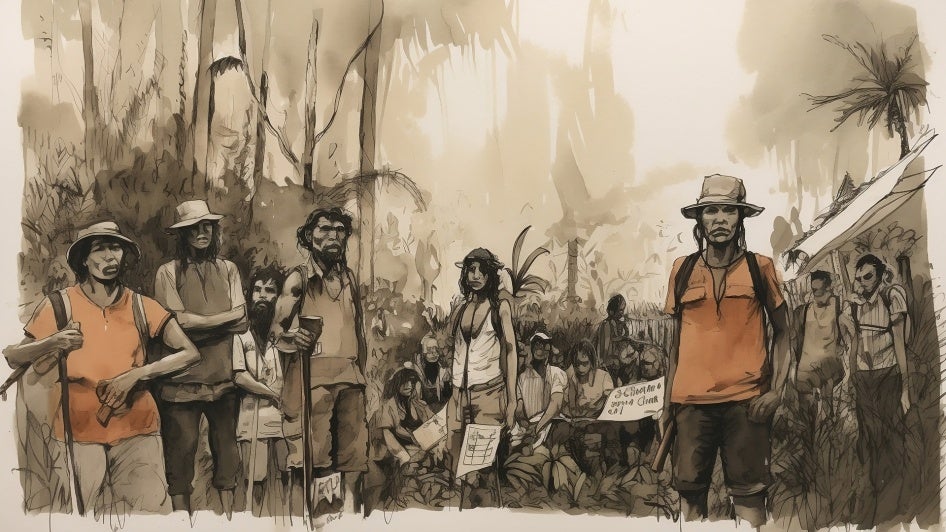(São Paulo) – The administration of Brazilian President Luiz Inácio Lula da Silva should rally legislators to approve the Escazú Agreement, more than 150 Brazilian and international organizations said today in a letter to Institutional Relations Minister Alexandre Padilha. The regional agreement protects the rights of access to information and to justice, as well as public participation in decision-making processes on environmental matters, and contains specific provisions for protecting environmental human rights defenders.
The letter's signatories include organizations working with communities affected by environmental destruction and associated violence; groups working on environment, Indigenous rights, transparency, access to information, and human rights; and academic institutions.
“The Lula administration took a very important step by sending the Escazú Agreement to Congress for approval last year,” said Andrea Carvalho, Brazil researcher at Human Rights Watch. “It now needs to engage lawmakers to ensure approval of a treaty that would further the government’s stated goal of protecting Brazil’s forests and taking a leading international role in fighting climate change.”
In March 2018, 24 Latin American and Caribbean states adopted the Regional Agreement on Access to Information, Public Participation, Justice in Environmental Matters in Latin American and the Caribbean, also known as the Escazú Agreement. Brazil signed the treaty that year but took no further action on it until May 2023, when President Lula finally sent it to legislators for ratification. Congressional approval is still pending. The agreement is currently under consideration by the foreign affairs committee in the Chamber of Deputies.
The agreement guarantees everyone’s right to access environmental information, such as on environmental risks and environmental protection, as well as to meaningfully participate in decision-making processes that affect their lives and the environment. It also requires countries to ensure adequate access to justice when those rights are violated, adopt measures to provide environmental defenders with a safe and enabling environment “so that they are able to act free from threat, restriction and insecurity,” and hold accountable anyone who threatens or commits acts of violence and intimidation against them.
The agreement is particularly relevant to countries like Brazil, where environmental and land defenders face threats and attacks. Human Rights Watch has documented the plight of communities in the Amazon trying to hold on to their land and protect the environment and their livelihoods from the onslaught of criminal networks involved in illegal logging, mining, and land grabs. The perpetrators of these acts of violence are rarely brought to justice.
Between April 22 and 24, the 15 countries that have ratified the Escazú Agreement will gather in Santiago, Chile, for the third Conference of the Parties (COP3). The Lula administration should send high-level officials as observers to show that Brazil is eager to join their efforts to protect the environment and those standing up to defend it across the region, Human Rights Watch said.
“Approving the Escazú Agreement should not be a partisan issue,” said Joara Marchezini, project coordinator at Nupef Institute and member of the Escazú Brazil Movement. “The agreement would benefit everyone by fostering government transparency, access to information, and stronger protection for Brazil’s natural heritage and its defenders. All parties in Congress should support it.”










